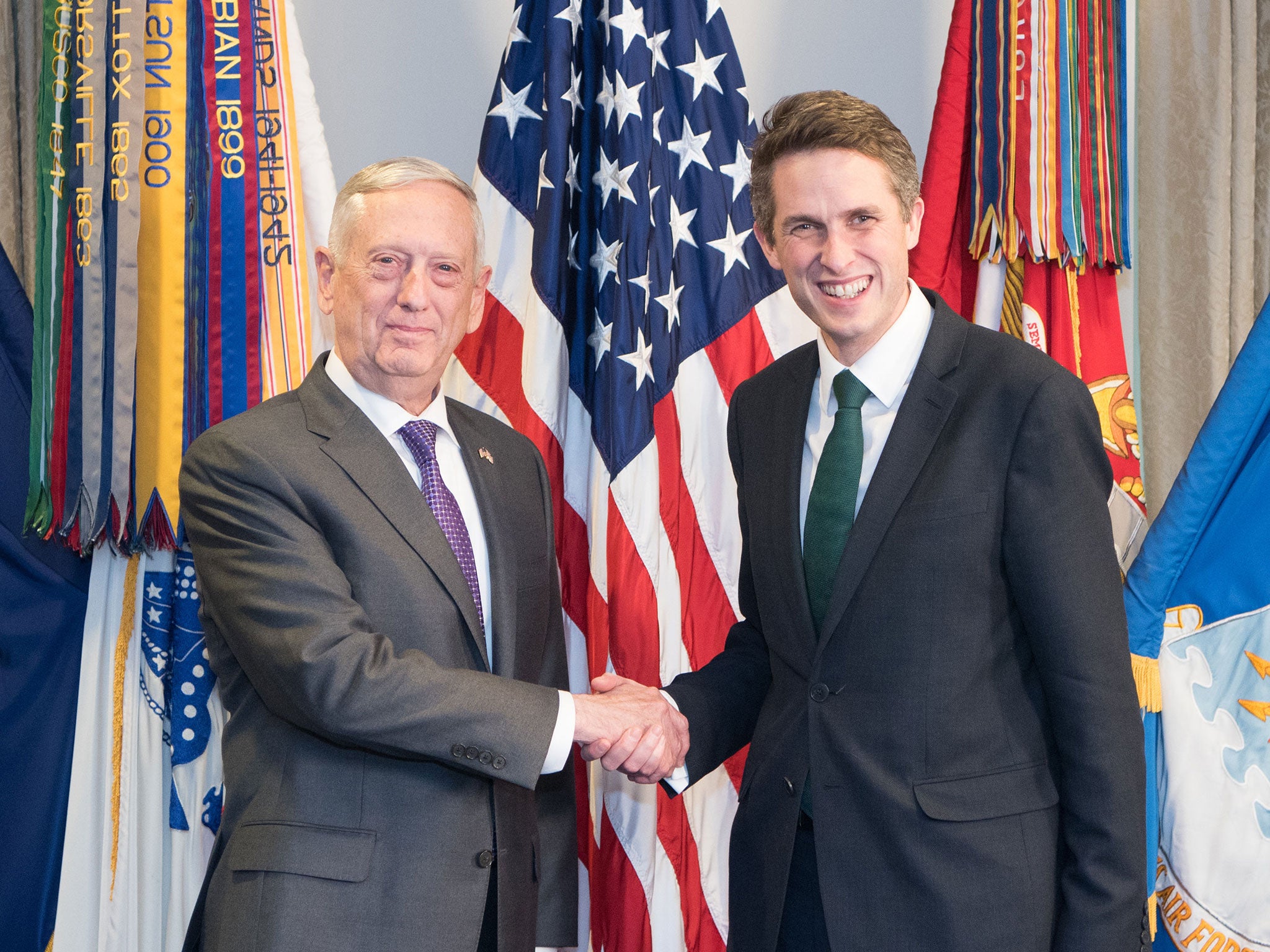US pushes Britain to spend more on military or warns France will be 'partner of choice'
The US defence secretary said Washington is concerned the UK’s power and influence is ‘at risk of erosion’

Theresa May is under growing pressure to increase military spending, after the US hinted that France could overtake Britain as America’s “partner of choice” in world affairs.
US defence secretary James Mattis said Washington is concerned the UK’s military power and diplomatic influence is “at risk of erosion”.
He made the comments in a letter to his UK counterpart Gavin Williamson, who is now locked in a tussle with Downing Street to try to secure more money for his department.
The letter was sent on 12 June, but with a spending review approaching and Mr Williamson looking to lever more funds from the Treasury, it was leaked to The Sun.
But it also comes ahead of a Nato summit on 11 and 12 July, after which Donald Trump will visit the UK.
In the two-page letter, Mr Mattis said “the credibility of the UK’s armed forces” had been crucial in securing its place on the world stage.
But he added: “I am concerned that your ability to continue to provide this critical military foundation for diplomatic success is at risk of erosion, while together we face a world awash with change.”

The UK is committed to meeting the Nato target of spending 2 per cent of GDP on defence, but the US hinted that it wants Ms May to go further.
Mr Mattis said: “A global nation like the UK, with interests and commitments around the world, will require a level of defence spending beyond what we would expect from allies with only regional interests.
“Absent a vibrant military arm, world peace and stability would be at further risk.”
Highlighting Emmanuel Macron’s recent pledge to pump an extra £260bn into defence by 2025, Mr Mattis said: “As global actors, France and the US have concluded that now is the time to significantly increase our investment in defence.
“Other allies are following suit.”
He stressed that it was “in the best interest of both our nations for the UK to remain the US partner of choice” but “in that spirit, the UK will need to invest and maintain robust military capability”.
In a reference to the Whitehall rows over funding, Mr Mattis added: “It is not for me to tell you how to prioritise your domestic spending priorities, but I hope the UK will soon be able to share with us a clear, and fully funded, forward defence blueprint that will allow me to plan our own future engagement with you from a position of strength and confidence.”
A Ministry of Defence spokesman said: “The UK maintains the biggest defence budget in Europe and we have been clear we will continue to exceed Nato’s 2 per cent spending target.
“The defence secretary launched the Modernising Defence Programme to strengthen our armed forces in the face of intensifying threats.”
Mr Williamson stepped up his efforts to get more money for the military after the NHS was promised a funding boost.

The week after receiving the letter, Mr Williamson told MPs that US patience over European defence spending was wearing thin.
The Commons Defence Committee has also called for a significant funding boost, moving the level of defence spending up from 2 per cent to 3 per cent of total GDP.
A cash injection on this scale would equate to additional funding of about £20bn a year and bring investment in defence to levels similar to those seen between the end of the Cold War and the mid-1990s.
Join our commenting forum
Join thought-provoking conversations, follow other Independent readers and see their replies
Comments
Bookmark popover
Removed from bookmarks